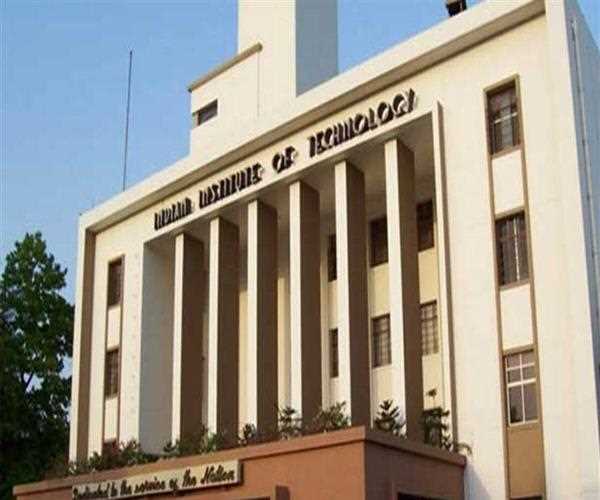IT, IIT, and ITI are all related to technology and education, but they are distinct from each other in their meaning, scope, and focus. In this essay, we will discuss each term in detail and highlight their differences.

IT (Information Technology):
Information Technology (IT) is a broad field that encompasses the use of computers, software, and telecommunications to process, store, retrieve, and transmit
information. IT is used in almost all industries, such as business, healthcare, education, entertainment, and government. IT professionals design, develop, implement, and maintain IT systems and applications to support the needs of their organizations. They work with hardware, software, networks, databases, and security to ensure the smooth operation of
IT systems. IT covers a wide range of areas, including programming, database management, system analysis, network administration, cybersecurity, and project management. IT is a dynamic and fast-paced field that requires continuous learning and updating of skills to keep up with the latest technologies and trends.
IIT (Indian Institutes of Technology):
Indian Institutes of Technology (IITs) are a group of premier engineering colleges in India that offer undergraduate, postgraduate, and doctoral programs in various disciplines of engineering, science, and technology. The first IIT was established in 1951 in Kharagpur, and now there are 23 IITs spread across the country. The IITs are known for their high academic standards, rigorous curriculum, world-class faculty, and state-of-the-art facilities. Admission to the IITs is through a highly competitive entrance exam called JEE (Joint Entrance Examination) that tests the candidate's knowledge and aptitude in mathematics, physics, and chemistry. The IITs have produced many successful alumni who have made significant contributions to the fields of engineering, science, and technology.
ITI (Industrial Training Institutes):
Industrial Training Institutes (ITIs) are vocational training institutes in India that offer training programs in various trades such as electrician, fitter, plumber, mechanic, welder, and so on. The ITIs are established and managed by the Ministry of
Skill Development and Entrepreneurship, Government of India, and offer training programs of varying durations ranging from six months to two years. The objective of ITIs is to provide vocational skills and training to students who want to pursue a career in the industrial sector. The ITI courses are designed to provide hands-on training and practical skills to the students, and the curriculum is updated regularly to keep pace with the changing needs of the industry. The ITIs also offer placement assistance to their students to help them find employment in the industrial sector.
Differences between IT, IIT, and ITI:
Scope: IT has a broader scope as it covers a wide range of areas such as programming, database management, system analysis, network administration, cybersecurity, and project management. IIT has a narrower scope as it focuses on engineering, science, and technology. ITI has a specific scope as it offers training in vocational trades related to the industrial sector.
Education level: IT is a field of study that can be pursued at the undergraduate, postgraduate, and doctoral levels. IIT offers undergraduate, postgraduate, and doctoral programs in engineering, science, and technology. ITI offers vocational training programs at the certificate and diploma levels.
Admission process: IT does not have a specific entrance exam for admission, and the admission criteria vary from institute to institute. IIT admission is through a highly competitive entrance exam called JEE (Joint Entrance Examination). ITI admission is based on merit, and there is no entrance exam for admission.
Curriculum: The IT curriculum focuses on theory and practical skills related to various areas of IT. IIT curriculum focuses on engineering, science, and technology, and includes a combination of theoretical and practical coursework. ITI curriculum is practical-based and focuses on vocational trades related to the industrial sector.
Duration: The duration of IT programs varies depending on the level of education, and can range from a few months to several years. IIT programs are typically four years for undergraduate studies, and two years for postgraduate studies. ITI programs are typically six months to two years in duration.
Career prospects: IT professionals can work in a wide range of industries, such as business, healthcare, education, entertainment, and government, and have a high demand in the job market. IIT graduates have a high demand in the engineering, science, and technology sectors, and are often recruited by top companies in these industries. ITI graduates are trained for specific vocational trades related to the industrial sector and can find employment in a variety of industries, such as manufacturing, construction, and maintenance.
In conclusion, IT, IIT, and ITI are three distinct terms related to technology and education. IT is a broad field that encompasses the use of computers, software, and telecommunications to process, store, retrieve, and transmit information. IIT is a group of premier engineering colleges in India that offer undergraduate, postgraduate, and doctoral programs in various disciplines of engineering, science, and technology. ITI is a vocational training institute that offers training programs in various trades related to the industrial sector. Each term has its own scope, focus, and level of education, and offers different career prospects to its graduates.